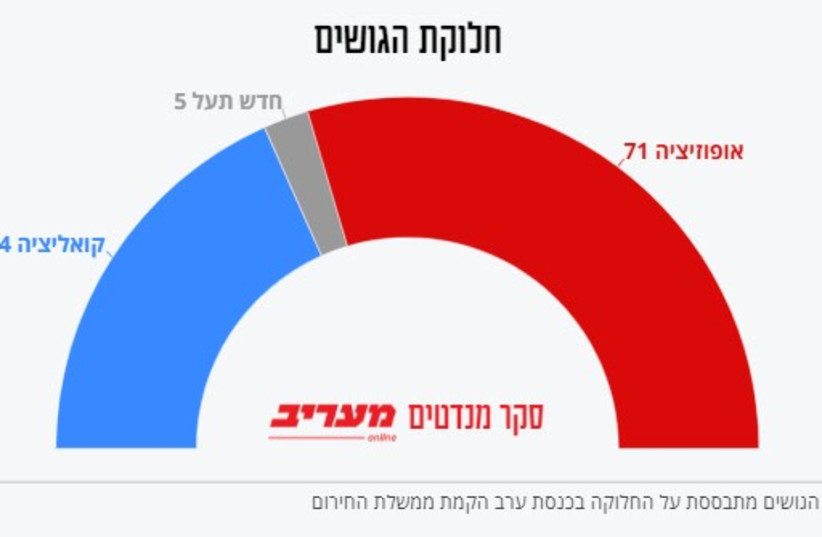Against the backdrop of the ongoing Israel-Hamas War in Gaza and the sense of a slowdown in the confrontation with Hamas, combined with a lack of clarity in the Hezbollah conflict in the north, National Security Minister Itamar Ben-Gvir continues to strengthen as his Otzma Yehudit Party reached its peak since the last Knesset elections, receiving 9 mandates in the latest Maariv poll.
Despite the positive news for Otzma Yehudit, the picture is not improving for the governing coalition, which received only 44 mandates, compared to 71 for the opposition bloc, not including Minister Gideon Saar's New Hope Party. The survey also revealed that Likud remains at a low of 16 mandates, and United Torah Judaism would also suffer losses if elections were held today.
In response to the question, "If new elections were held for the Knesset today, who would you vote for?" the answers were: The National Unity camp – 39 mandates (39 in the previous survey), Likud – 16 (16), Yesh Atid – 13 (13), Yisrael Beyteinu – 10 (10), Shas – 9 (9), Otzma Yehudit – 9 (8), United Torah Judaism – 6 (7), New Hope – 5 (5), Ra'am – 5 (5), Meretz – 4 (4), Religious Zionist Party – 4 (4).

Who is more suitable for prime minister?
In response to another question, "Who, out of incumbent Benjamin Netanyahu or Benny Gantz, is more suitable to be the prime minister of Israel?" the answers were: Gantz – 50% (51% in the previous survey), Netanyahu – 31% (29% in the previous survey).
Another 19% answered – don't know. The breakdown shows that among Likud voters, Netanyahu received 62%, compared to 22% for Gantz and 16% who answered – don't know. In the National Unity camp, Gantz received 91%, Netanyahu 1%, and 8% answered that they don't know. In the Yesh Atid voters' battle, Gantz got 85%, Netanyahu – 1%, and 14% answered that they do not know. The survey, conducted on January 17-18, included 512 respondents, representing the adult population in Israel aged 18 and above, both Jews and Arabs. The maximum sampling error stands at 4.3%.
The poll was carried out by Lahav Research, led by Dr. Menachem Lazar, in collaboration with Panel4All.
